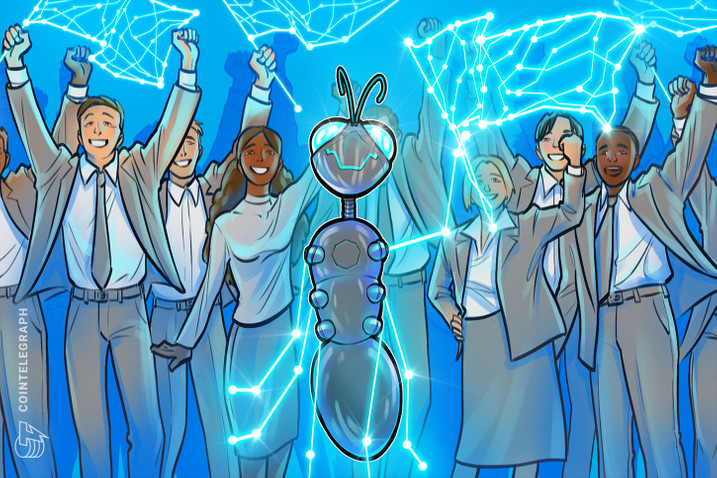If you're interested in cryptocurrencies or blockchain, I probably don't have to detail the benefits of decentralization. You are the first generation users of the technology that will increasingly define the future of the internet, and you will be sitting front row at the Web3 world premiere.

Internet use and control has always been as deeply centralized as we see it now. In the early days, under the guidance of the US Department of Defense, the Internet did not need to rely on a core computer. What if a terrorist attack or missile attack destroys the masternode? Various network components must communicate without relying on a single computer to reduce vulnerabilities.
Later, the private Internet Engineering Task Force (Internet Engineering Task Force), which facilitated the development of all Internet protocols, worked continuously to prevent private companies or specific countries from controlling the network.
Today, centralized application nodes are controlled and operated by the wealthiest organizations on the planet, collecting and storing data on billions of people. Private companies control the user experience of apps and can incentivize and manipulate user behavior. From a reliability standpoint, billions of people will lose their primary means of communication when a central node crashes — as happened recently with Facebook, Instagram, WhatsApp, and Messenger in October 2021.

We’ve also seen that while the money beckons the tech giants, they rarely take our privacy seriously: they collect and sell our data on an industrial scale. Mark Zuckerberg has been brazenly exploiting the Metaverse after more than a decade of treating people as the product of advertisers. Meanwhile, Google and Apple continue their relentless mission to reach every corner of our lives.
Even in Silicon Valley, where Western ideals of liberty and individual rights are embraced, tech empires rarely choose a principled stand, opting instead for a large, lucrative market. When centralized institutions like Moscow or Istanbul demand censorship and control, they usually get it. Fundamentally, we cannot entrust the deepest details of our lives to the tech giants; centralized control of the internet is undermining or hindering democracies everywhere.
take back our power
We should not be surprised that the tech giants have become the natural enemies of decentralization: centralization is the natural instinct of those in power. Before the internet and blockchain, centralization usually meant convenience and simplicity. In the Middle Ages, distributed vassalism meant the monarchy lacked control and money seeped through corrupt cracks.
With time and distance becoming less of an issue in the internet age, it's no surprise that tech giants are moving toward centralization. Will we be shocked by the dire results of attention-grabbing algorithms? For example, attempted genocide or political manipulation based on psychometric analysis of user data? Centralization has consequences.
Distributed ledger technology offers a practical alternative. Social media, messaging, streaming, search, and data sharing on the blockchain can be fairer, more transparent, more accessible, and more decentralized. Conversely, this does not mean that data has to be less private.
In the case of XX Messenger, which my team and I launched in January, XX Network nodes process anonymous messages globally, breaking down metadata for recipients and timestamps. With XX, there is privacy and decentralization. This new mode of communication and information sharing has since allowed democracy to be greatly expanded and reshaped.
There are moments in history when two separate events come together to reveal a larger truth. In 2008, the collapse of Lehman Brothers Holdings Inc. in the aftermath of the Great Recession seemed the death cry of centralized financial institutions, even as it would herald a painful recession. Then, just over a month later, Satoshi Nakamoto published the Bitcoin ( BTC ) white paper, the revolutionary blueprint for the modern peer-to-peer currency. There is an important connection between these two major events, but the words "bitcoin," "blockchain," and "cryptocurrency" attract the attention of those who misunderstand the problem of centralization.
In the fall of 2008, we had the opportunity to start telling a story: it was up to us - cryptographers, privacy enthusiasts, traders, developers, activists and new enthusiasts - to carry the torch of decentralization and democracy . If ever there was a story worth telling, from beginning to end, this is it.
Tell it with me!
Cointelegraph Chinese is a blockchain news information platform, and the information provided only represents the author's personal opinion, has nothing to do with the position of the Cointelegraph Chinese platform, and does not constitute any investment and financial advice. Readers are requested to establish correct currency concepts and investment concepts, and earnestly raise risk awareness.
 Catherine
Catherine





